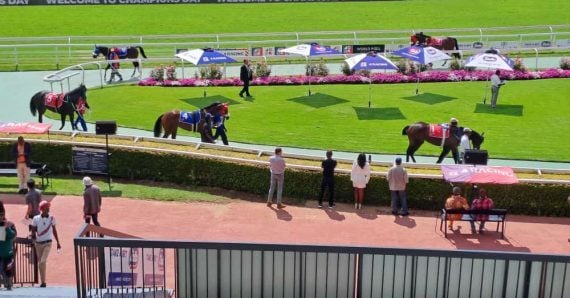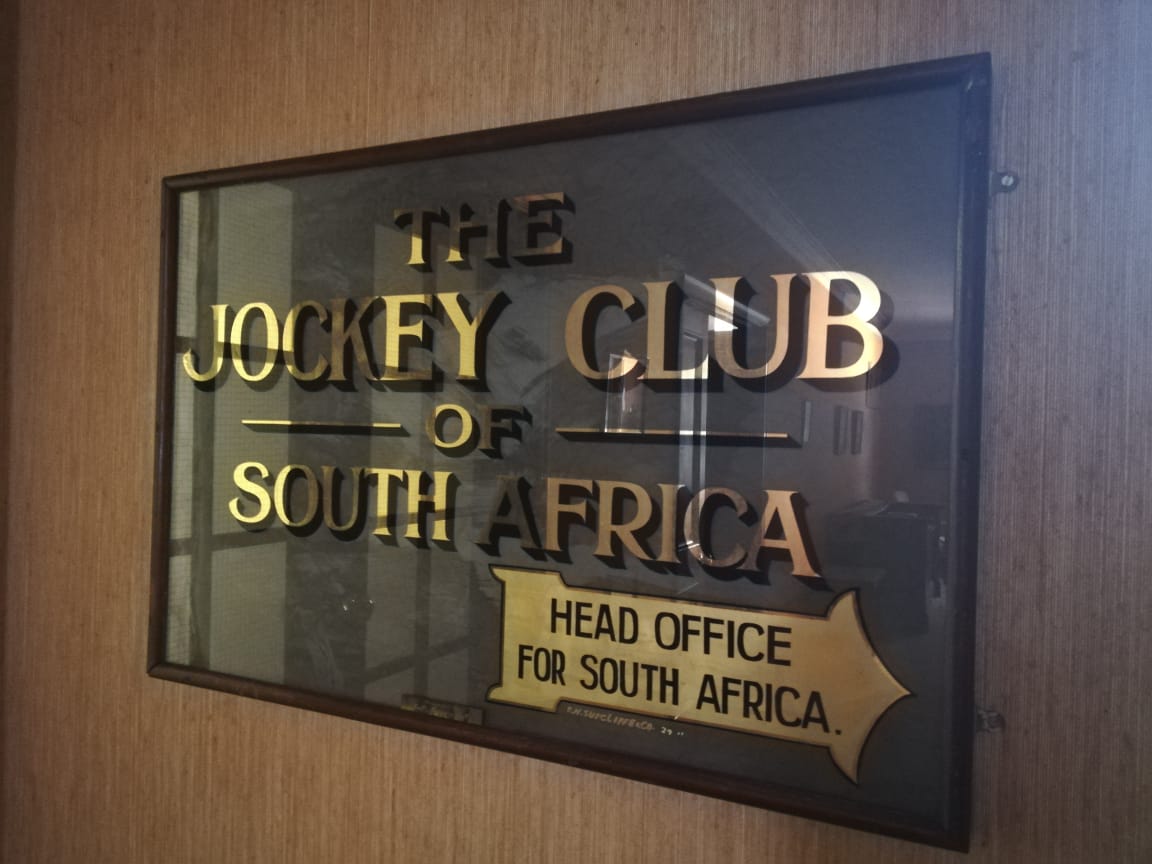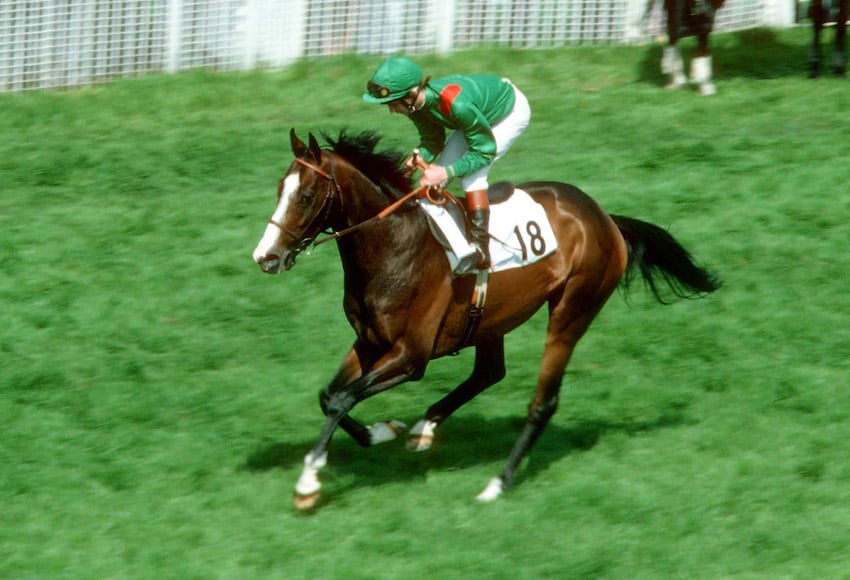extract from the Ray Paulick report
Barry Irwin first crossed my radar in 1980, when I began working in the Los Angeles office of the Daily Racing Form. His name came up in a conversation, and the Form’s West Coast editor turned all shades of purple and started cursing under his breath.Irwin had quit the paper not that long before and wrote a “kiss and tell” article in the now-defunct New West magazine about the Form’s editorial practice of sugar-coating everything, ignoring industry problems, and writing whatever the racetracks wanted. Suffice to say he wasn’t well liked by the powers that be at the old Racing Form
That convinced me to hunt down a copy of the article, and I have to say it was quite an eye-opener. My recollection is that just about everything he wrote was true.
Thirty years later, Barry Irwin is still kicking shins, tossing insults, and speaking his mind about how to make the Thoroughbred industry a better place. Only now, as the head of the Team Valor International ownership syndicate that won the Kentucky Derby with Animal Kingdom, Irwin’s platform is a lot bigger.
We first knew this wasn’t going to be a typical Kentucky Derby winner’s celebration when Irwin was asked by NBC Sports reporter, right after Animal Kingdom’s victory, why he hired Graham Motion to train Team Valor’s horses. When Irwin said he got tired of other trainers lying to him, Neumeier was stunned. A few minutes later, in the post-race news conference, Irwin hurled a few barbs toward racing writers and track management.
We caught up with Irwin as he headed toward Maryland and the second leg of racing’s Triple Crown.
What originally got you into horseracing?
My dad used to be a track and field fan, and I was and still am. My whole family ran track. Nobody in my family except an aunt liked going to horse races. She had a boyfriend that enjoyed going to the track. The father of someone in my neighborhood was supposed to be a sock salesman, but he really went to the track all the time. Between my aunt’s boyfriend and my neighbor’s dad, that’s how I started.
I loved watching racing on TV. When I was five or six years old, I used to con my grandparents on Sunday mornings to drive me out into the San Fernando Valley, just to look at the horses in the stables out there.
Then some friends of mine and my brother made up our own little horse racing game in a room off to the side of our garage. We had a track, a stable area, everything. We’d roll dice, move the horses around the track and see who’d win. I had some Santa Anita Handicap horses in that stable.
I went to the track all through high school. In my youth and teenage years I ran track and field. I wasn’t any kind of a student: I just sat in class and daydreamed and tried to think of wisecracks.
When I read “Catcher in the Rye,” it made me want to become a writer. That book had a huge influence on my life. I idolized J.D. Salinger. I just thought he was the greatest. I started writing short stories and took night classes at UCLA. One woman who taught the class had a small literary magazine and she bought five or six of my stories. When my first story was to appear, the magazine lost its funding—that was around 1969. I wrote a story that editors at The New Yorker had for about eight months, they finally decided they didn’t want to use it. I then started a novel about horse racing.
How did you first start working in the racing industry?
One day I decided to quit my job as a probation counselor at a camp for delinquent youth. I drove to Kentucky and went into the offices of The Blood-Horse and asked about getting a map to the horse farms. (Advertising director) Erbert Eades came out and asked me what I was doing, and I told him I wanted to be a writer. He said you should talk to Kent Hollingsworth. Kent asked me a couple of questions. I knew the answers but was so nervous I couldn’t remember them. I showed Kent a couple of things I’d written and he hired me.
That was in October of 1969. The next spring, my daughter got some really bad allergies. We couldn’t get any doctors there to help, so we flew home to Los Angeles, and the first doctor took care of her, so we decided to stay there. I then went on to write for the Thoroughbred of California and the Racing Form.
When did you buy your first horse?
In 1978, I had seen my friend Jeff Siegel buy a couple of horses. All I had was a 20-year-old broodmare. I saw Siegel do it, got a few friends together, and claimed a horse in 1978. Then Siegel and I bought some together, won three races in three starts, and everyone thought I knew what I was doing.
I was still at the Racing Form and writing stuff, but they kept throwing it in the trash can. So I quit the Form and in September 1978 opened a bloodstock agency and ran it for 10 years.
What do you remember about that first horse?
Her name was Sari’s Tobin, and we claimed her off “The Pie Man,” E.B. Johnston. The day we claimed his horse for $35,000, he went down to the winner’s circle, and went out of his mind. He came back to his seat and started screaming, “Who would claim my horse?” We were sitting right next to him. The guy never talked to me again.
How did your racing partnership business begin?
In 1987 I had about five guys show up in my office. They were some of the shiftiest-looking guys I’d ever seen. They had worked for a guy who syndicated horses. He would only do one or two a year — buy them for $100,000, then syndicate them for $900,000 or a million. These guys thought it was a horrible thing to do, but liked the concept. They came to me, I listened to them, I had them talk to Siegel. We said these guys are scary as hell, but if we can structure it properly it might work. So we formed Clover Racing Stable, and the first horse we bought was Political Ambition, who won the Hollywood Derby.
You’ve been very outspoken and often dissatisfied about the direction the sport has taken, not just in recent years, but going back to the late 1970s. What’s kept you in the game?
I just love it. I think it’s fascinating. It’s a great challenge. I get really excited when I see one of my horses run. I like the competition and like trying to win big races and make history.
What aspect of winning the Kentucky Derby has been the biggest surprise to you?
Before the race, I was standing there and thinking, “I’m so cool and calm.” I’m wondering why I’m not excited. Then, when the race is over, it hit me like a ton of bricks. I’m crying, sobbing, my knees are weak, I’m holding on to my wife.
I was confident my horse would run well but couldn’t envision him winning. I was constantly girding myself against disappointment, but when it came to fruition it just bowled me over, the enormity of what happened.
What does the Derby win mean from a financial standpoint for Team Valor?
I don’t know yet. It’s too early to tell. Hopefully it will put us on the map with more people, and they’ll will learn about what we do and become a participant.
You’ve been heavily involved in South African bloodstock the last several years and bought the dam of the Kentucky Derby winner in Germany. Is this a matter of you searching around the world to find the best horse for the lowest price?
Absolutely 100% correct. For years, I’ve tried to figure out where I can get the best value. Every time I come up with a new wrinkle others catch on, then I have to come up with another method. One of the best things I’ve done is start going to South Africa, to their yearling sales and learning their business. Their horses are tough as nails and well raised. The challenges in trying to export one are daunting. The shipping and quarantine costs are very high. At the South African sale this year I started to see guys from Kentucky and Virginia, I thought it was going to be tough sledding, but not one of them bought a horse.
What tools do you use in evaluating potential bloodstock acquisitions?
In the U.S. we use Ragozin Sheets. You’re looking for something to validate your own opinion. In England, we use Timeform, and in South Africa they have a Merit Rating. Numbers are nice but can lead to false impressions. You can’t buy horses off numbers. It’s tough to bet just using numbers, and you can’t buy horses that way. It’s a lot more complicated than it looks.
You made some remarks after the Derby about the growth of partnerships and said tracks are not doing enough to cater to partnership members. What are some specific things racing can do in this area—and not just on Kentucky Derby day?
This is where I think the conflict is. I don’t think it’s a financial consideration. All tracks have room except on the very, very big days. Even on the big days there’s enough room for everybody. I don’t see why they can’t set some seats aside for my guys. They are going to bet a lot of money and spend a lot of money.
At the Derby we asked for a lot of seats. We got some good seats and some really bad ones.
There just seems to be more respect paid to individuals who own horses as opposed to groups. They want to minimize someone who owns 8% of a horse as opposed to someone who owns the whole horse. Turf writers will cater more to individual owners than to a partnership. We don’t get made available to us as many of the perks as single owners have.
The year Colonial Affair won the Belmont (for the Centennial Farms partnership), I was in the gift shop and the guy who ran NYRA was in there complaining to the gift shop manager about the partnerships. I waited outside, introduced myself and said, “I take exception to what you said. All the guys you want to see have quit racing. Reagan took their tax breaks away. Except for the Phippses, they’re gone. You’re looking at the guy who is replacing them.” He said he was just joking. I said there was nothing funny about it.
What are the changes horse racing can make to become more viable and successful?
The first thing we have to do is regain the confidence of fans and gamblers. A lot of big gamblers are gone, because they have no faith in the integrity of the game. We have to bend backwards to get them back.
Right now the horsemen are the biggest stumbling block. I’m looking forward to the Udall and Whitfield bills (creating drug-free racing and stricter penalties).
There are two issues with drugs. First, less than 1% of trainers are cheaters. There are the normal therapeutic drugs everybody knows about. Every time there is a positive or a small overage, they are mostly for therapeutic medications. It’s an aberration, or the vet gave the shot a little too late. We have to eliminate that whole thing so it’s not part of the discussion. That’s one-third of the problem.
The other thing — two-thirds of the problem – is that there are guys who want to cheat. They are going to use designer drugs or drugs for human beings. The only way to get that problem to go away is security, to police the sport better. Three strikes and they’re out of the game. We do that, it would be a great deterrent. It would show the public we are serious. We can get some of the people back who have left the game.
There is stuff going on right now, guys who have found other things to use that have steroidal affect. There always will be guys who will show a trainer how to cheat. We need to catch the cheaters and get rid of them.
How good a horse is Animal Kingdom?
I don’t think anybody knows. He’s a very unique horse. Has done stuff other horses haven’t. He was a laid-back horse till the Spiral (his final prep, at Turfway Park). That race really woke him up. When he had his last work at Keeneland, he was flying through the stretch. His Churchill work caught everybody by surprise. For some reason we were confident he would do well but we couldn’t tell you why.
What this horse has done with that pedigree is beyond me. He has no right to run like he has on the dirt. I think he’s just some kind of a freak. He went from an 8 3/4 to a 3 1/4 on Ragozin. We just have to sit back and watch and see what happens.
.









